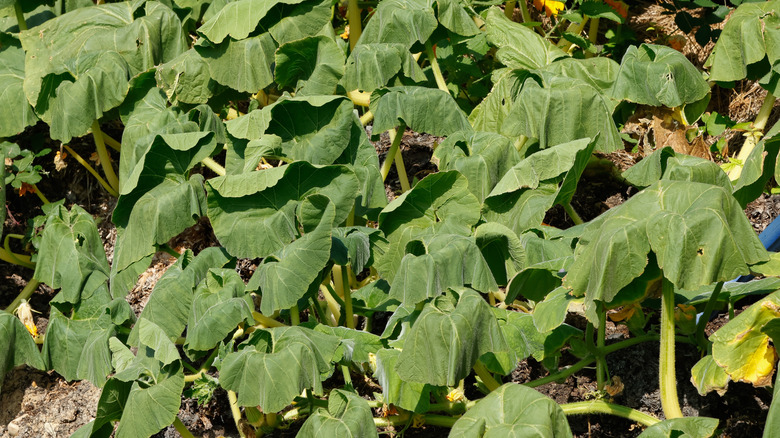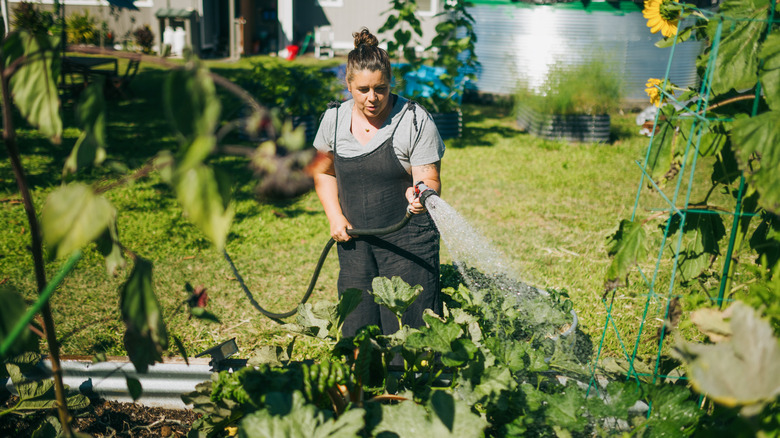Do Your Wilting Squash Plants Really Need More Water? Here's The Easy Way To Tell
If you've stepped outside on a warm afternoon to see your squash plants wilting, you may immediately grab the watering can to give them a good soak. However, this may not help. Firstly, the afternoon is not the best time of day to water your vegetable garden, as it may lead to disease problems. Secondly, a wilting squash plant doesn't necessarily need water. Your plants may simply be trying to protect themselves from the afternoon heat (and doing a good job of it).
Plants with big leaves, like squashes, wilt when they are losing water through their leaves faster than they can soak it up through their roots. The water may be in the soil, but they are just a little slower at absorbing it. When this occurs, plants lose the water pressure within their leaves that keeps them firm. This is called turgor pressure. When your squash plant wilts, it protects its leaves from the harsh afternoon sun, allowing them to retain more moisture. In the evening, when the sun is less intense, they will soak up more water and perk up.
To avoid overwatering your squash plants, test the soil if you notice wilting. Simply stick your finger into the soil, and if it's moist, your plants don't need any water. As squash plants do like a lot of water, their soil should feel moist at all times. However, they have long taproots that help them absorb water during dry spells. You should also inspect the plant for other signs of drought stress, such as dry, brittle leaves and wilting that does not go away in the evening. If they don't have these signs and the soil feels moist, you probably don't need to water your squash plants.
What does an overwatered squash plant look like?
Although a lot of types of squash are easy to grow, it's essential to take care of their needs if you want healthy, productive crops. Squash plants need around 1 inch of water a week, applied to the soil so the leaves stay dry. However, if you have been watering your squash plants more than this because of their wilting, you may wish to keep an eye out for signs of overwatering.
Overwatering garden crops can actually do a lot of damage, as it can cause the soil to lack oxygen. This, in turn, may lead to root rot, a lack of vigor, and eventually death. If your squash plant leaves are turning yellow and have leaf scorch or burn, they may be getting too much water. Overwatered plants may also display water-soaked blisters on their leaves and stems.
Overwatered squash plants are more susceptible to pests and diseases, so look over your crops for signs of fungal infections or root rot. If your plants are infected, you may have to get rid of them to save the surrounding crops. Removing the soil around the roots will also help to protect any future plants growing there. Check the drainage of your soil if your squash plants are showing signs of infections, rot, or overwatering.

